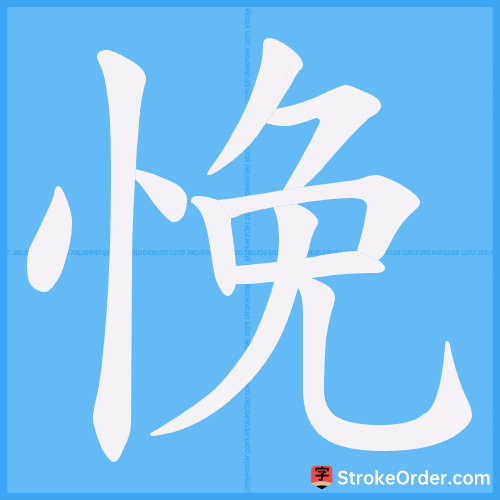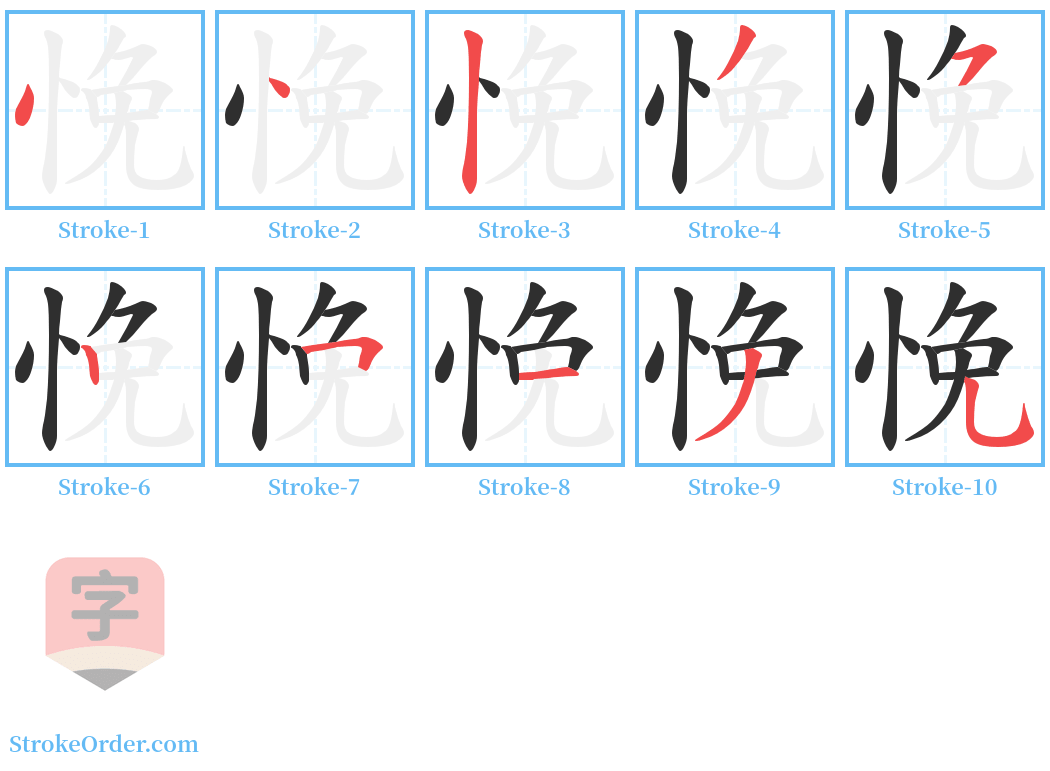悗 Stroke Order
Animated Stroke Order of 悗

Stroke Order Diagrams for 悗

Information of 悗
Pinyin
mán、 mèn
Radical
忄
Strokes
10 strokes
Usage
★★
Definition
悗
1. 闷烦。
1. Bothered and annoyed.
“清浊相干,乱于胸中,是谓大~。”
("When purity and impurity interfere, causing chaos in the heart, this is called great confusion.")
2. 迷惑。
2. Confused.
“夫说以智通,而实以过~。”
("To speak of wisdom is to understand, but in reality, it leads to excessive confusion.")
形容词:困惑。
Adjective: Confused.
《吕氏春秋.审分览.审分》:「夫说以智通,而实以过悗。」
("In the Book of Lord Shang: 'To speak of wisdom is to understand, but in reality leads to excessive confusion.'")
形容词:烦躁郁闷。
Adjective: Restless and depressed.
《黄帝素问灵枢经.卷六.五乱》:「清浊相干,乱于胸中,是谓大悗。」
("In the Yellow Emperor's Inner Canon: 'When purity and impurity interfere, causing chaos in the heart, this is called great confusion.'")
3. 不经意,无心。
1. Unintentional, absent-minded.
“~乎忘其言也。”
("It was so unintentional that I forgot my words.")
4. 孤独的样子。
2. The appearance of loneliness.
形容词:忘情的样子。
Adjective: The appearance of forgetting emotions.
《庄子.大宗师》:「悗乎忘其言。」
("In the Zhuangzi: 'Being absent-minded to the point of forgetting one's words.'")
《韩非子.忠孝》:「古者黔首悗密蠢愚。」
("In the Han Feizi: 'In ancient times, the common people were absent-minded and foolish.'")